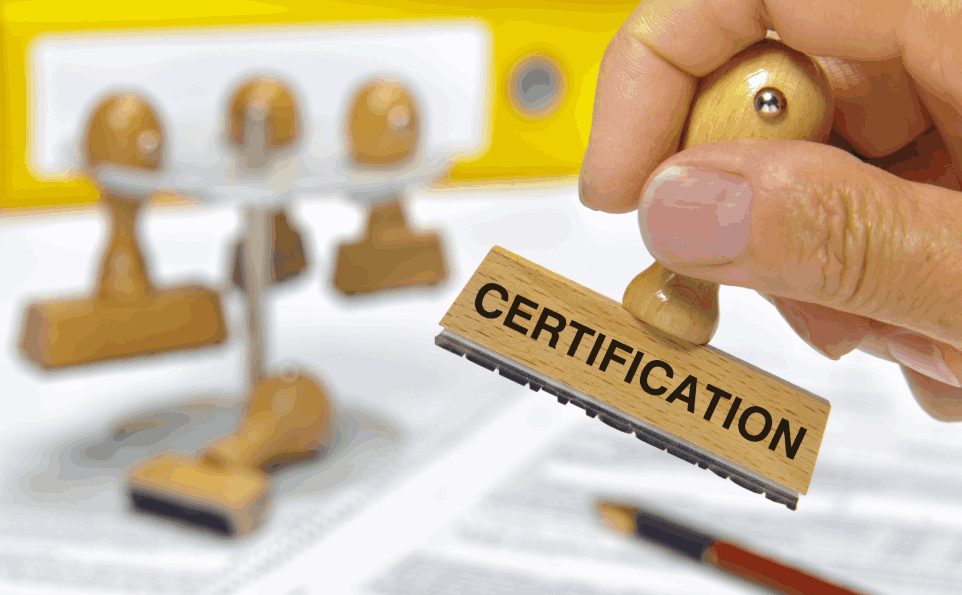In 2014, a high-profile case involving faulty medical devices led to widespread concern and a series of regulatory reforms. The scandal involved metal-on-metal hip implants, which caused severe complications for thousands of patients. This incident underscored the critical importance of rigorous safety and quality standards in healthcare products. It highlighted a vital question: how can we ensure that the products used in healthcare are safe and reliable? This is where product certifications come into play.
Thesis Statement: Product certifications such as FDA, CE, and ISO play a crucial role in ensuring the safety, efficacy, and quality of healthcare products. These certifications are not just bureaucratic hurdles but essential mechanisms that uphold public health standards and foster trust in medical innovations.
Understanding Certifications
A. Definition:
A product certification is a formal recognition that a product meets specific standards and regulations set by authoritative bodies. The process involves rigorous testing, evaluation, and documentation to ensure that the product adheres to the prescribed safety, quality, and performance criteria. Obtaining a certification typically involves several steps, including product design reviews, clinical trials (if applicable), quality management assessments, and ongoing compliance checks.
B. Benefits of Certifications:
Increased Safety and Reduced Risks: Certifications ensure that products undergo comprehensive testing and evaluation, reducing the likelihood of defects and failures that could harm users. For instance, medical devices must pass stringent safety tests to minimize the risk of malfunctions.
Enhanced Patient Trust and Confidence: When a product is certified by a recognized authority, it assures patients and healthcare providers of its safety and effectiveness. This trust is particularly crucial in healthcare, where the stakes are high, and the margin for error is minimal.
Improved Market Access and Competitiveness: Certifications are often prerequisites for entering certain markets. For example, the FDA approval is mandatory for medical devices in the United States, while CE marking is required in the European Union. These certifications not only open doors to these markets but also enhance the product’s credibility and competitive edge.
Key Regulatory Bodies and Certifications
A. FDA (Food and Drug Administration):
The FDA is the primary regulatory body overseeing the safety and efficacy of medical products in the United States. It has stringent regulations and processes to ensure that products meet high standards before they reach consumers.
FDA Approval Pathways:
510(k) Clearance: This pathway is for devices that are substantially equivalent to already legally marketed devices. It involves demonstrating that the new device is as safe and effective as the predicate device.
Premarket Approval (PMA): This is the most stringent type of device marketing application required by the FDA. It involves a thorough review process, including clinical trials, to ensure the device’s safety and efficacy.
B. CE Marking:
The CE mark signifies that a product complies with European Union regulations and can be marketed within the European Economic Area.
Significance for the European Market: CE marking is essential for accessing the European market. It indicates that the product meets EU safety, health, and environmental protection requirements.
CE Marking Process and Compliance Requirements: The process involves a conformity assessment, which may include product testing, a review of technical documentation, and quality management system audits. Once compliance is verified, the manufacturer can affix the CE mark to their product.
C. ISO (International Organization for Standardization):
ISO develops and publishes international standards to ensure quality, safety, efficiency, and interoperability of products and services.
ISO’s Role in Setting International Quality Standards: ISO standards are globally recognized and facilitate international trade by ensuring that products meet universal quality and safety benchmarks.
Relevant ISO Standards for Healthcare Products:
ISO 13485: This standard specifies requirements for a quality management system where an organization needs to demonstrate its ability to provide medical devices and related services that consistently meet customer and regulatory requirements. Compliance with ISO 13485 is often a prerequisite for obtaining other certifications, such as the CE mark.
Choosing the Right Certification
Selecting the appropriate certification depends on several factors, including the target market and the specific type of product.
Target Market Considerations: Different regions have different regulatory requirements. For example, a company aiming to sell medical devices in the US must obtain FDA approval, while those targeting the European market need CE marking. Understanding the regulatory landscape of the intended market is crucial for compliance and market entry.
Product Type Specifics: Certain products may require additional certifications beyond the basic regulatory approvals. For instance, electrical medical devices might need certification from Underwriters Laboratories (UL) to ensure electrical safety standards are met. Other examples include:
- CSA (Canadian Standards Association): Required for products entering the Canadian market.
- TGA (Therapeutic Goods Administration): Required for medical products in Australia.
- CFDA (China Food and Drug Administration): Necessary for products entering the Chinese market.
Conclusion
In the healthcare industry, certifications play an indispensable role in safeguarding patient safety, ensuring product quality, and facilitating market access. These certifications are more than just regulatory requirements; they are a testament to a product’s adherence to rigorous safety and quality standards. As healthcare continues to innovate and evolve, the importance of these certifications in promoting patient safety and fostering trust in medical products cannot be overstated. They not only protect consumers but also drive the continuous improvement and innovation that are vital to advancing global health outcomes.
Product certifications from bodies like the FDA, CE, and ISO are essential pillars supporting the integrity and reliability of healthcare products worldwide. They provide a structured framework for manufacturers to follow, ensuring that only the safest and most effective products reach the market. As a result, these certifications uphold public health standards, enhance consumer confidence, and contribute to the overall advancement of the healthcare industry.
FAQs (Frequently Asked Questions)
1. What are product certifications, and why are they important in healthcare?
Product certifications are formal recognitions that a product meets specific standards and regulations set by authoritative bodies. In healthcare, these certifications ensure the safety, efficacy, and quality of medical devices and products, thereby safeguarding patient health and fostering trust among consumers and healthcare providers.
2. How do I know which certification my healthcare product needs?
The certification required depends on factors such as the target market and the type of product. For instance, to sell medical devices in the United States, FDA approval is necessary, while CE marking is required for the European market. Understanding the regulatory landscape of your target market is crucial for compliance and market entry.
3. What is the difference between FDA approval and CE marking?
FDA approval is required for medical devices entering the US market and involves rigorous review processes such as the 510(k) clearance or Premarket Approval (PMA). CE marking, on the other hand, is necessary for products marketed within the European Economic Area and signifies compliance with EU regulations regarding safety, health, and environmental protection.
4. Are there additional certifications required for specific types of healthcare products?
Yes, depending on the nature of the product, additional certifications may be necessary to ensure compliance with specific safety and quality standards. For example, electrical medical devices might require certification from organizations like Underwriters Laboratories (UL) to ensure adherence to electrical safety standards.
5. How can ISO standards benefit healthcare product manufacturers?
ISO standards, such as ISO 13485 for quality management systems, provide a framework for ensuring consistent adherence to quality and regulatory requirements. Compliance with ISO standards not only facilitates market access but also demonstrates a commitment to quality and customer satisfaction, enhancing the credibility and competitiveness of healthcare product manufacturers.
 Hospital Furniture
Hospital Furniture Medical Devices
Medical Devices MSR Products
MSR Products Office Furniture
Office Furniture